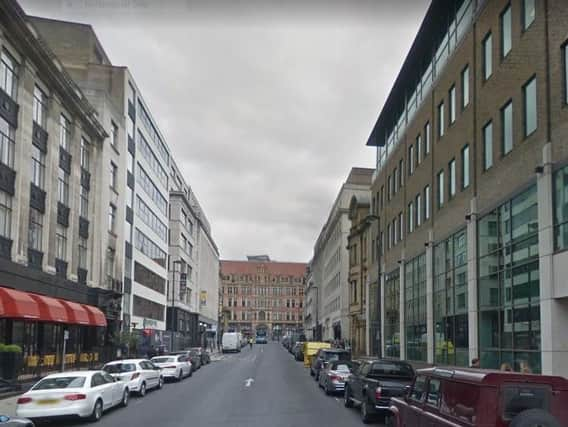Leeds loses out on £1m in legal change over office to residential conversions


The findings come from research by University College London which assessed five cities to gauge the extent of schemes that have proceeded under permitted development and the implications on revenues for local authorities and local communities.
Since the new rules for permitted developments were introduced in 2013, the research has estimated that the contributions Leeds City Council would have secured through approvals and planning applications is £745,127. The potential loss of affordable housing could be 31 units and the loss of section 106 contributions could be at least £353,498.
Advertisement
Hide AdAdvertisement
Hide AdWhile the council is not cashing in, developers are and, a snapshot of the case studies done by the team at UCL show how buildings are more lucrative when offered as residential use.
Land Registry data shows 60 Upper Basinghall Street sold in February 2016 for £324,000 and just six months later (after the prior approval), it sold for £510,000. Looking at rental prices advertised online, it is possible that the annual residential rental income for the building would be up to £63,600. This compares to £6,100 per annum rateable value when the building was occupied by businesses.
117 The Headrow is now ‘luxury serviced apartments’ from Mansio Suites. The 26 high quality are apartments being rented from £149 per night for studios and £169- 189 per night for ‘suites’ and are often fully booked.
The building was offered for sale through Lambert Smith Hampton before conversion with a price of £1.25m and a rental income of £100,000 per annum reflecting a net initial yield of 7.56 . In 2016 per cent, according to Land Registry data, the building sold for £5m (after the change of use was established).
Advertisement
Hide AdAdvertisement
Hide AdWhile the report found office to residential has not been as contentious in Leeds as other cities studied (Camden, Croydon, Leicester and Reading) and that there was support for it, especially in terms of student accommodation, it also flagged up issues for concern and says there is “little or no family housing” and on the outskirts of the city centre, developments were “a concern” due to poor space standards and amenities for residents.
Just one per cent of the 310 new units being created by office-to-residential conversion under Permitted Development in Leeds which was examined had access to private or communal amenity space. Where it was possible to tell, only 43 per cent complied with national space standards. 70 per cent of the units were studio or one bedroom apartments.
Dr Ben Clifford, senior lecturer at UCL, said: “The idea of reusing vacant office space as housing is a good one. The way this is currently governed as ‘permitted development’ in England is highly problematic. Whilst we saw some high quality conversions of office to residential during our detailed case study research, we also saw many other examples of very poor quality housing.”